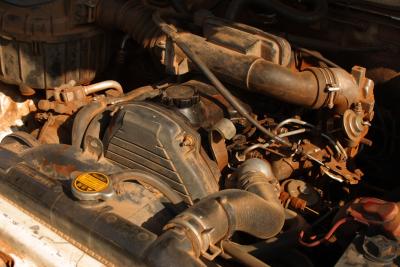
A common rail diesel engine uses a single fuel rail, similar to conventional gasoline engines, and each injector comes off the single fuel rail to feed diesel fuel to a specific cylinder of the engine so each cylinder has its own fuel supply independent of the others, unlike conventional gasoline systems which use an intake manifold. There are a number of problems that can arise with the use of a common rail diesel injector, and some of these are based on the design of the injectors, while some are inherent to the common rail system and must be overcome in order for the system to work.
Material fatigue can be a problem with a common rail fuel injector due to the fact that the individual working parts are producing much more work than the average metal piece of a car or truck. Common rail injectors are subject to high temperatures, high stress and tens of thousands of times more work cycles than something like the distributor drive gear. Material fatigue can cause the injectors to fail.
Micro fractures can cause leaks and unwanted pressure drops that can lead the common rail diesel injectors to fail. Using material that has been properly magnafluxed and inspected for internal failure points can reduce the possibility of micro fractures.
Common rail engines that are used in marine applications or regular road use in areas where moisture and road salt are a problem are also subject to corrosion. For this reason, common rail injectors can fail unless they are properly treated for corrosion resistance, or unless the fuel is properly certified to contain low amounts of sulfur and water and other corrosive materials.